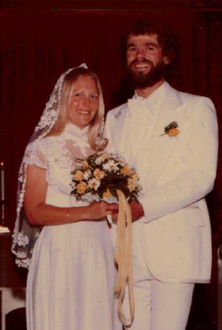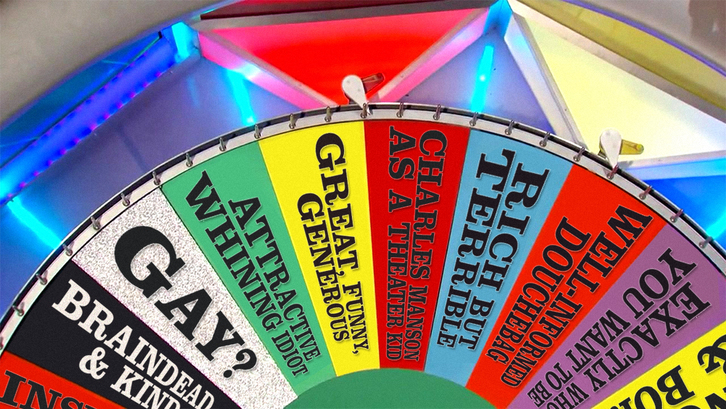It’s pretty amazing how American adolescents have the nerve to feel so embarrassed by their parents when they are literally the worst people earth has to offer.
You can pretend that’s not true, but if you put a 12-year-old in charge of the country, we’d all be dead in like eight minutes. If you don’t believe me, there’s an increasingly decent chance we’ll have this confirmed in about 9 months.
That’s one of the great ironies of adolescence–we’re so painfully embarrassed by our parents at the time, but right now, in your current adult state, there’s nobody who can embarrass you more than your middle school self.
And I’m not even talking about reminiscing on actually embarrassing moments. Sure an ill-timed first period, or a public boner can be rough to look back on, but the most awful, cringe-worthy moments from your adolescence are from when you weren’t embarrassed.
I mean have you cracked open your middle school yearbook lately? Do you remember how cool you thought you were? Do you remember every time you tried to make a class presentation “funny?” Have you re-watched dance videos you made with your friends, and awful, squeaky-voiced impressions where you thought you were just nailing it? Do you remember calling that poor kid who probably was gay a “faggot” every day with no thought to how it was ruining the kid’s life?
Is there anything more horrifying in the world than looking back on all of this? You can’t help but want to vomit andthink, “God, I was such an unbelievable douche.”
Well, all of this still happens to me. Pretty much every time I look back on my work (or actions) of more than two years ago and I want to go back in time to push past me into traffic. I always feel like I’ll never reach the seemingly impossible standards of future me. I’ll always think I was a complete douche not that long ago.
This is frustrating, and stressful, and…ultimately good. In fact, it should be a goal for all of us.
We should always be progressing so much that when we look back on who we were a couple years ago, we feel the same disdain and discomfort that we feel when looking back at our middle school selves.
We don’t do this because we like to think that, at some point, we’re grown up, we’re settled, and we’re the same basic people that we’ll be until we’re old. But let me ask you something. Are you perfect? Answer that for me. I’ll wait.
No? That’s my guess. Your answer is no, right? I’m going to assume you said “No,” or perhaps, “Hell no. I’m a big fat ugly sack of imperfect.”
If you’re not perfect, then what the fuck makes you think you’re ever done growing up?
Think about it. Growing up is essentially just progressing as a person. It’s gaining in maturity, wisdom, and functionality. There really shouldn’t be a time where that just stops. When we don’t continue to look to grow up, we end up with a society full of people who don’t know who they are, how to function, or how to think on their own.
But we’re conditioned to think like this. We’re told when we reach young adulthood to “choose who you’re going to be,” and implicit in that command is that we’re going to be the same person forever. “Choose a spouse and a job that you’ll be saddled to forever–that you’ll still enjoy when you’re 62.”
Well how the fuck do I know that? I don’t know who I’m going to be when I’m 62. Fuck, I don’t know who I’m going to be when I’m 28, and I’m currently 27.
That’s true for all of us. You are going to change a ton in your life. That’s happening. You’re on that train, and it’s moving, and right now, you don’t know where the hell it’s going.
I bet your parents thought they were settled at your age, but have you seen pictures of your parents at your age? Can you fathom them having ever been that person? Can you fully comprehend that that‘s your mother?
Why do we live in denial of this? Why do we like to pretend we’ll be the same people forever?
We do this because stagnation is comforting. It’s familiar. It’s the blanket we wrap ourselves in while we eat ice cream sandwiches and slowly slip into death’s sweet embrace.
And change can suck. To some, change is trying a shitty new food and vomiting. It’s going skydiving and sobbing the entire time. It’s getting up at 6:30 to go to the gym, and who actually wants to do that shit?
And besides, I got this job being the way I am. I had my family being the way I am. They can’t leave me as long as I don’t change who I am, right? Why shake things up?
Well, unless you shine shoes for a living, your work life will change, and your family changes at a constant, rapid fire, holy-shit-pump-the-brakes pace. If you don’t grow with these things, you actually increase your risk of losing them and becoming the angry homeless man yelling at trash cans by the time you’re 42.
The Risk of Passive Change
The good news is you’re going to change regardless of what happens. The bad news is that if you’re not keeping tabs on yourself, then this is passive change. Passive change not where you notice things that need improvement and take steps to make things better. Passive change is where change happens without us ever noticing or controlling it.
Passive change is a risky business. When we passively change, we might unknowingly let our frustration get to us until we become grumpy. We might let the world pass us by until we become out of touch. We might let ourselves become outraged about everything until we become that fucking person on Facebook.
Now it’s also true that we could passively change in awesome ways, but if we’re not conscious about our changes, then we have no control, and we’re leaving it up to chance. We could wind up being awesome, or the worst person on the planet (if Charles Manson was a theater kid?).
We’re blindly spinning the wheel of change, and we don’t know who we’ll end up becoming.
But we don’t have to blindly spin this wheel. That’s not a rule in life. Pat Sajak isn’t going to disqualify us. We can just move the wheel where we want it to go.
When we accept that change is inevitable, then we can try to steer it in a given direction. Then we can stop falling down the Manson-theater-kid rabbit hole, and instead say, “I don’t always have to be this way,” and then we can take concrete steps to make that change a good one.
So we should try to improve who we are, and never stop–not when we get married and have kids, not when we get divorced and our kid calls us an asshole, and not when we’re 93 and ready to say “fuck everything.”
You aren’t who you are. You aren’t done. You’re going to be drastically different. It’s up to you to decide how. The goal is to constantly seek to be kinder, more knowledgeable and more thoughtful, and strive to be so successful, that you’re ashamed of who you used to be. We should seek to look at every past version of us like we look at our middle school selves.
So the goal isn’t so much perfection as it is to be 93, and to look back on yourself when were were 90, and want to vomit and think, “God, I was such an unbelievable douche.”









